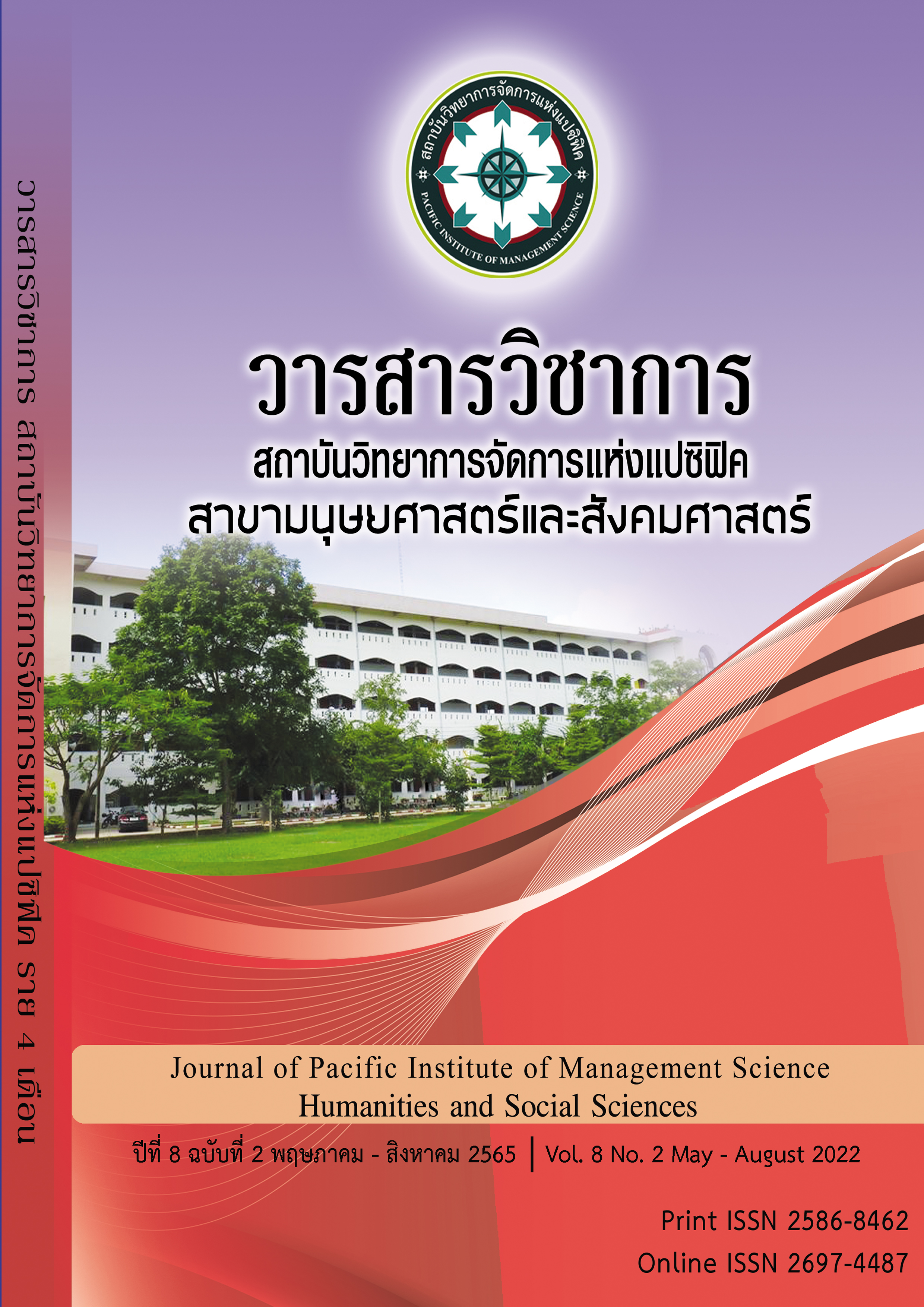The Behavior of Bilingual Dictionary Using in the Study of Translation Among Bachelor of Education Students, Malay Language Program
Keywords:
dictionary, translation, Malay languageAbstract
This research was to study the behavior of bilingual dictionary using in the study of translation among Bachelor of Education students, Malay Language Program. The purposes of this study were (1) to study the purpose of selecting bilingual dictionaries that differ among students (2) to study how familiar with using bilingual dictionaries of the students and (3) to study problems in using dictionaries in learning Malay-Thai translation. The population consisted of 33 second-year Education Students, Malay Language Program who registered Malay-Thai translation course. The tool was questionnaire about dictionary using and percentage was used to analyze the data.
The result of the study showed that the student used a bilingual dictionary to find the meaning of a word. They are more familiar with bilingual dictionaries than one language dictionary. The problem of using dictionary is students do not know which words are appropriate to match their meanings. They also do not understand symbols and acronyms used in the dictionary and cannot find the meaning of the word.
References
จรูญ เกนี่. (2533). พฤติกรรมการใช้พจนานุกรมในการเรียนภาษาอังกฤษของนิสิต. วารสารภาษาปริทัศน์.ฉบับที่ 25 , 39-52.
ดุษฎี รุ่งรัตนกุล. (2556). การศึกษาการใช้พจนานุกรมและปัญหาในการใช้พจนานุกรมในวิชาการแปลเบื้องต้นของนิสิตวิชาเอกภาษาอังกฤษ ชั้นปีที่ 3 มหาวิทยาลัยนเรศวร. วารสารมนุษยศาสตร์ มหาวิทยาลัยนเรศวร, 10 ( 3), 1-16.
วันทนี แสงคล้ายเจริญ. (2557). การสร้างแบบฝึกทักษะการใช้พจนานุกรมภาษาอังกฤษ-อังกฤษเพื่อพัฒนาความสามารถในการเขียนภาษาอังกฤษของนักศึกษาวิชาเอกภาษาอังกฤษศิลปะศาสตร์ ชั้นปีที่ 2. รายงานวิจัย มหาวิทยาลัยราชภัฏยะลา
วรรณา แสงอร่ามเรือง. (2545). ทฤษฎีและหลักการแปล. พิมพ์ครั้งที่ 2. กรุงเทพฯ: โรงพิมพ์ จุฬาลงกรณ์มหาวิทยาลัย.
สุทธิพงศ์ เพิ่มพูน. (2556). การแปลบทบรรยายใต้ภาพยนตร์ (subtitles) ภาพยนตร์จากภาษาไทยเป็นภาษาอังกฤษ: กรณีศึกษาภาพยนตร์เรื่อง “ปล้นนะยะ (ภาค 1)” และ “ว้ายบึ้ม เชียร์กระหึ่มโลก”. วารสารวจนะปีที 1ฉบับที 1 (มกราคม– มิถุนายน 2556).
อรองค์ ชาคร. (2560). กลวิธีการแปลวรรณกรรม. วารสารห้องสมุด ปีที่ 61 ฉบับที่ 2 กรกฎาคม-ธันวาคม 2560, 93-109.
Anida binti Nasukaa, Siti Nuur Roihan binti Saidin. (2014). Kekuatan dan Kelemahan Kamus Dwibahasa dalam Membantu Penterjemah. Procedia-Social and Behavioral Sciences 134 (2014) 364-372.
Baxter.J. (1980). The Dictionary and Vocabulary Behavior: ASingle Word or a Handful? TESOL QUQRTERLY, 14(3), 325-336.
Bejoint, H. (1981). The foreign student’s Use of Monolingual English Dictionaries : A Study of Language Needs and Reference Skills Applied Linguisticsm. New York : McGraw Hill.
Coady. J. (1997). L2 Vocabulary Acquisition: A Synthesis of the Research. In Coady. J., and Huckin, T., (Eds.). Second-Languge Vocobulary Acquisition: A Rational for Pedagogy. Cambridge: Cambridge University Press.
Duran, C. G. & Rodriguez L. A. (2013). The use of the dictionary as a teaching/ learning resource. Retrieved on August 25, 2020, from http://www.slideshare.net/DIEGOFMACIAS/using-the-dictionary-as-a-teachng-tool.
Garcia. S. S. (2006). Dictionary Use in 12 Writing (Doctoral dissertation, Universided Autonoma de Nayarit, Mexico). Retrieved from http://www.fonael.org/Articulos_Mem_FONAE_II/Santos_Garcia_Saul.pdf.
Koren, S. (2011). Quality versus convenience: Comparison of modern dictionaries from the researcher’s, teacher’s and learner’s points of view. Retrieved on August 25, 2020, from http:www.tesl-ej.org/wordpress/issues/volume2/ej07/
ej07a2/?wscr=.
Laufer, B. (1995). Dictionary. Kernaman Dictionary News. 3(July 1995) : 37-40.
Luppescu. S. and Day, R. R. (1993). Reading, Dictionaries, and Vocabulary Learning, Languae Learning, 43(2), 263-87.
Neubach, A. & Cohen, A. D. (1988). Processing strategies and problems encountered in the use of dictionaries. Journal of the Dictionary Society of North America, 10(1), 1-20.
Nesi, H. and Meara, P. (1994). Patterns of Misinterpretation in the Productive Use. System, 22(1),1-15.
Nesi, H. & Haill, R. (2002). A study of dictionary use by international students at a British
university. International Journal of Lexicography, 15(4), 277-305.
Sánchez Ramos, M. (2009). Research on dictionary use. Retrieved on June 6, 2009, from http://accurapid.com/Joural/32dictuse.htm.
Sterling, J. (2010). The portable electronic dictionary: Faithful friend or faceless foe? Retrieved on December 8, 2010, from http://www.elgweb.net/ped-article.html.
Summers, D. (1988). The Role of Dictionaries in Language Learning. In Carter R, McCarthy M, (Eds) : Vocabulary and Language Teaching (pp. 111-125). London: Longman.
McCarthy, M. (1990). Vocabulary. Oxford: Oxford University Press.
Martin, R. (1998). One Benefit of Monolingual Dictionaries in the Writing Classroom. The Internet TESL Journal, 6(10). Retrieved from http://iteslj.or/Articles/Martin-Dictionaries.html
Downloads
Published
Issue
Section
License
Copyright (c) 2022 Pacific Institute of Management Science

This work is licensed under a Creative Commons Attribution-NonCommercial-NoDerivatives 4.0 International License.
บทความที่ได้รับการตีพิมพ์เป็นลิขสิทธิ์ของ สถาบันวิทยาการจัดการแห่งแปซิฟิค
ข้อความที่ปรากฏในบทความแต่ละเรื่องในวารสารวิชาการเล่มนี้เป็นความคิดเห็นส่วนตัวของผู้เขียนแต่ละท่านไม่เกี่ยวข้องกับสถาบันวิทยาการจัดการแห่งแปซิฟิค และคณาจารย์ท่านอื่นๆในสถาบันฯ แต่อย่างใด ความรับผิดชอบองค์ประกอบทั้งหมดของบทความแต่ละเรื่องเป็นของผู้เขียนแต่ละท่าน หากมีความผิดพลาดใดๆ ผู้เขียนแต่ละท่านจะรับผิดชอบบทความของตนเองแต่ผู้เดียว







